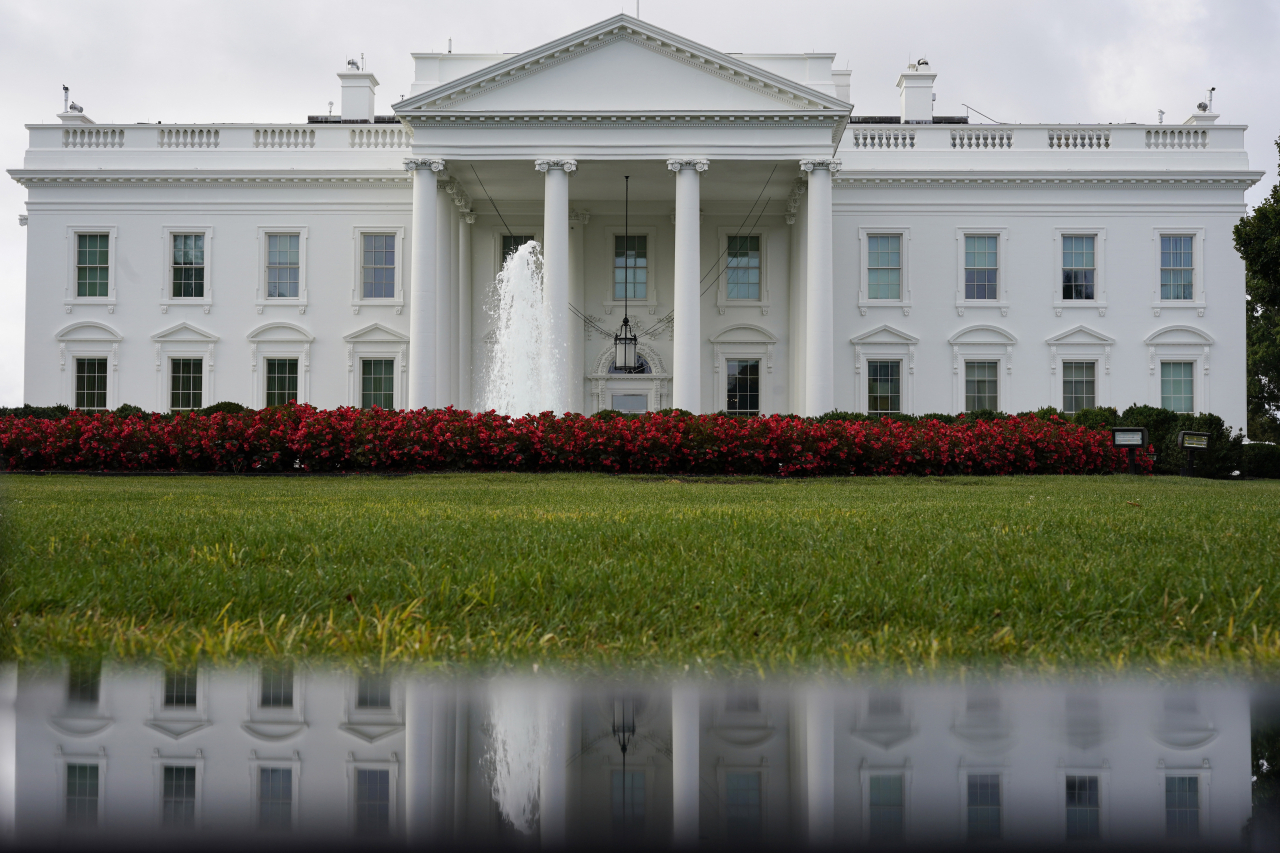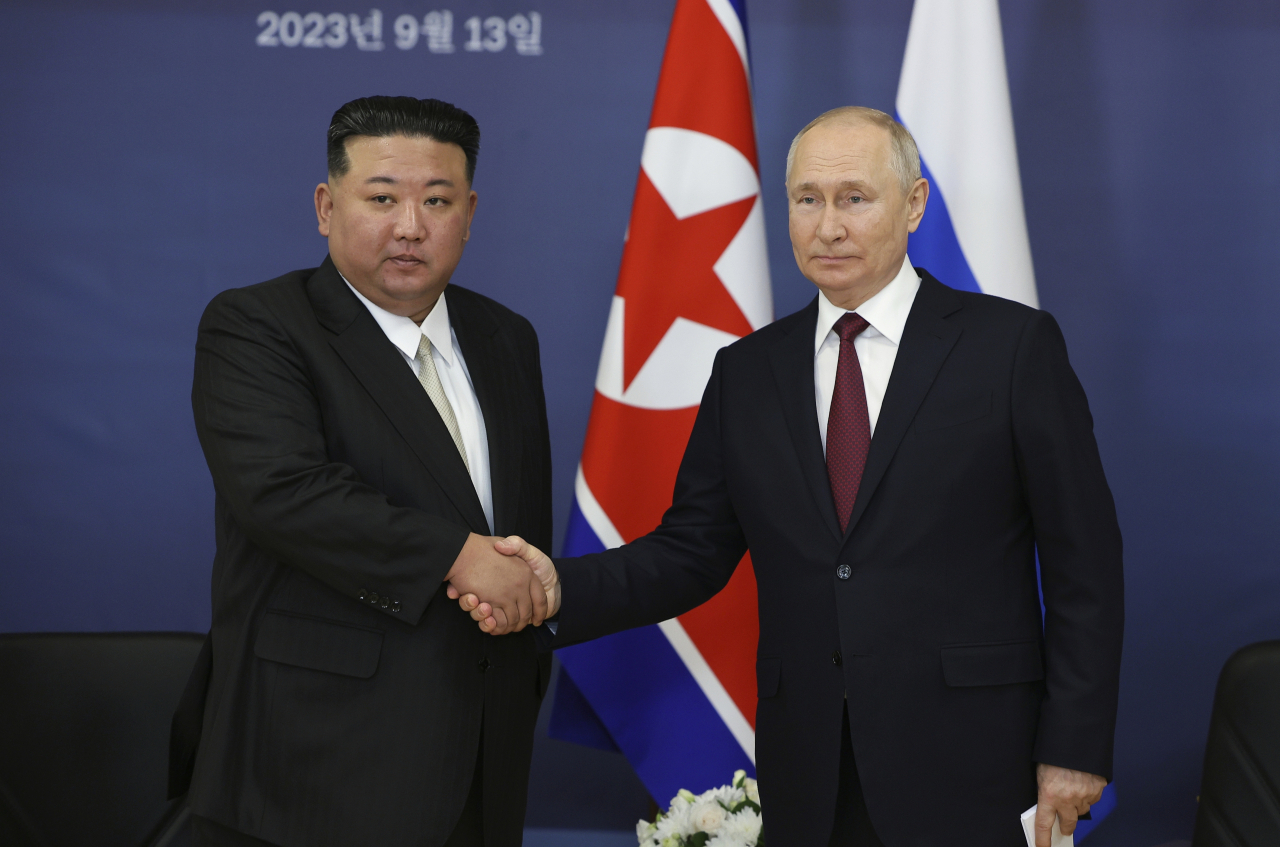 |
The White House is seen reflected in a puddle, Saturday, Sept. 3, 2022, in Washington. (AP) |
The US presidential election could be the foremost global risk, with anticipated effects extending more broadly and profoundly across global security, stability and economic outlook than any other event, according to a report.
The biggest challenge in 2024 is the "United States versus itself," marked by the presidential election scheduled in November, Eurasia Group, a New York-based political risk consulting firm, said in its annual forecast report that listed the top 10 risks to the world this year.
"The United States is already the world's most divided and dysfunctional advanced industrial democracy. The 2024 election will exacerbate this problem no matter who wins."
The outcome of the election holds profound implications for the entire global population, comprising 8 billion people, yet the decisive influence rests in the hands of a mere 160 million Americans. The fate of the result is intricately intertwined with just tens of thousands of voters residing in specific swing states.
"An unprecedentedly dysfunctional US election will be by far the most consequential for the world’s security, stability and economic outlook."
The US presidential election has diplomatic and security implications across the Indo-Pacific region, Eastern Europe and the Middle East.
The report said Kyiv will take increasingly reckless actions to secure gains this year before the next US president's inauguration, while the potential definitive end of US aid for the war in Ukraine in 2025 will strengthen Russia's determination to continue fighting.
In the Middle East, Trump's robust support for Israel and willingness to confront Iran will embolden Israeli Prime Minister Benjamin Netanyahu and concurrently constrain Biden's room for policy maneuvering.
Political pressure from congressional Republicans will pose challenges for US President Joe Biden in preserving the "thaw" with China in the run-up to the election, according to the report.
 |
Russian President Vladimir Putin (right) and North Korea's leader Kim Jong-un shake hands during their meeting at the Vostochny cosmodrome outside the city of Tsiolkovsky, about 200 kilometers from the city of Blagoveshchensk in the far eastern Amur region, Russia, on Sept. 13, 2023. (AP) |
Conflicts in the Middle East, including the Israel-Hamas war, and the ongoing Russia-Ukraine war ranked as the second and third most significant global risks, respectively. The report highlighted that none of the top three risks have adequate guardrails to prevent them from worsening.
Ungoverned artificial intelligence and the "axis of rogues" were designated as the fourth and fifth biggest risks likely to unfold this year.
"Russia, North Korea, and Iran are the world's most powerful rogue states," the report said.
"In 2024, deeper alignment and mutual support among these rogue states will pose a growing threat to global stability as they boost one another's capabilities and act in increasingly coordinated and disruptive ways on the global stage."
The primary catalyst for the deepening alignment is Russia's imperative need for military assistance, particularly in terms of weapon supplies, the report said.
The report highlights that North Korea has become an "essential resource" for Russian President Vladimir Putin's war efforts, owing to the country's pariah status, militarized economy and substantial reserves of Soviet-standard artillery ammunition.
Tehran has supplied Moscow with kamikaze drones, which are now also being manufactured in Russia, intending to use them for attacks on Ukraine.
Other reasons for their alignment stem from a common experience of grappling with draconian economic sanctions, a shared animosity towards the United States, and a shared willingness to violate international law and disrupt a global status quo perceived to favor Western interests to their detriment.
The three countries' "coordinated sanctions-busting and rule-breaking will undermine the compellent and deterrent power of Western sanctions, emboldening other would-be rogues."
The report suggested that the emboldened rogue countries could "wage asymmetric warfare," including via cyberattacks, support for terrorism and disinformation campaigns, designed to disrupt elections and sow chaos.
The report also assessed the trilateral alignment was a "marriage of convenience and opportunity," emphasizing that their alignment, strengthened for specific objectives rather than a strategic move, is primarily focused on regime survival and geopolitical advantage.
Although the relationship is anticipated to stay mainly transactional, the report underscores that the growing cooperation among them holds a significant disruptive potential that should not be underestimated.






![[Weekender] Korea's traditional sauce culture gains global recognition](http://res.heraldm.com/phpwas/restmb_idxmake.php?idx=644&simg=/content/image/2024/11/21/20241121050153_0.jpg)
